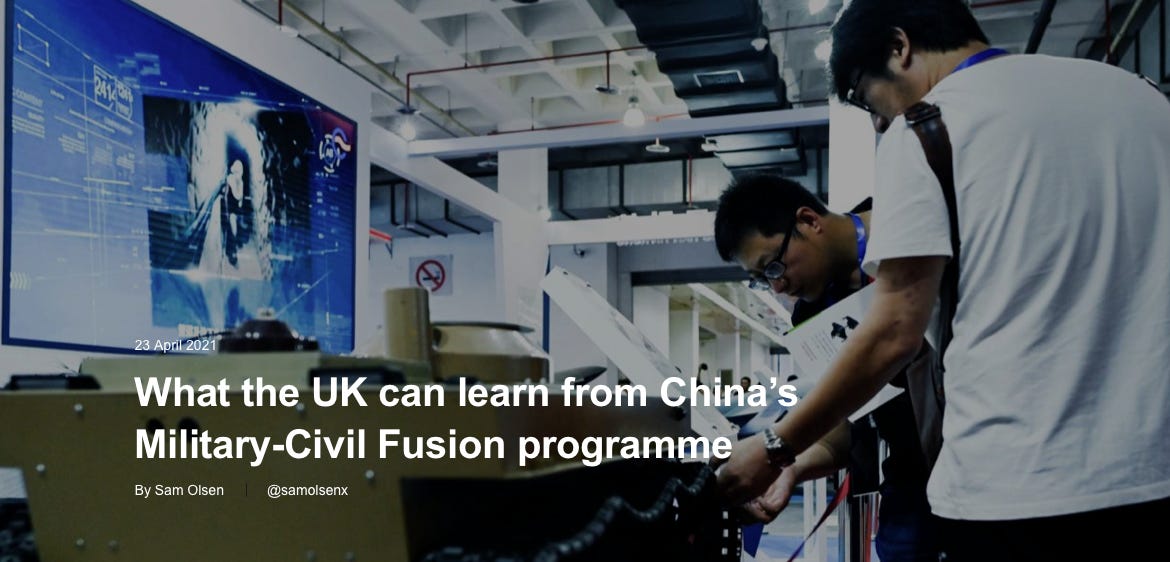Dear all
The last ten days or so have seen the publication of the controversial EU Strategy on the Indo-Pacific, the comments by the Australian defence minister that conflict over Taiwan involving China ‘should not be discounted’, and the announcement next month of the deployment to Asia of the UK Carrier Strike Group - and yet it comes to something to think that this a quiet time on the China-Western front.
Today I’m going to direct you to an article I wrote for the UK online newspaper CapX which follows up on my recent Military-Civil Fusion post. The piece asks if there are any lessons that the UK can learn from China’s MCF.

Before we answer that, we should note that UK defence R&D is actually in quite a good place at the moment. Although the amount that the government spends is comparatively small, it’s still more than almost every other nation (aside from the US, China, and perhaps Russia - like everything else coming out of Moscow the numbers are opaque).
Where the UK is missing a trick is in the development of dual-use technologies that can be used by British civilian companies to create commercial advantage. This is what China seemingly does well, but there may be some people in the West who are squeamish about elevating such links.
If you have any thoughts on this – maybe you think that civilian and military R&D should be kept separate - then feel free to write a comment. It’s good to get the conversation going, especially on topics as contentious as this.
Please remember to share and subscribe. Many thanks for reading.



Thing is, civilian and military R&D which China is doing now with its MCF draws heavily on studying the experiences of the US/UK/Western Allies during WWII. That was during wartime, where needs do what needs must. There wasn't talk of oversight, or ethics, or accountability. Right now it's still officially peacetime for the West and the entire world.
It's not so much the lack of money from the UK government to pursue civilian-military R&D cooperation, but the lack of political will to do it, as well as a society and civilian academic industry that is increasingly restive and far less respectful of the government to simply go along with such initiatives without asking too many questions.
The US can still afford to do this partially because of the sheer black hole of money that they throw into such R&D we will never know about in their classified black ops budgets, and because of the "fear factor" that the federal government and various organisations such as the Pentagon, CIA and NSA still command in civilian and academic society there. It's not something easily replicable outside of the US, nor of China now for that matter.
Food for thought I suppose.